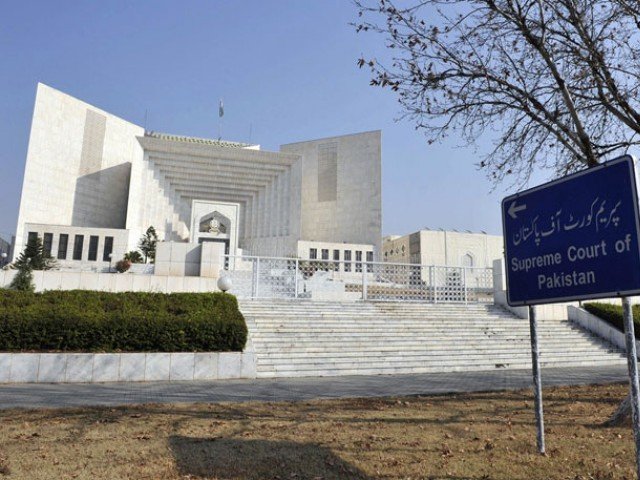
The Supreme Court (SC) on Friday reserved its ruling in a case challenging the 18th and 21st constitutional amendments.
The lengthy legal battle reached the highest court in the land a few months ago when 17-judges of the Supreme Court started examining petitions challenging the procedure of appointment of judges under the 18th Amendment and the establishment of military courts under the 21st Amendment to try militants in the wake of last year’s bloody Peshawar school rampage.
After intense legal wrangling, the apex court considered three questions regarding the validity of the 18th and 21st constitutional amendments and is expected to issue its ruling based on them.
The questions were whether or not the amendments have a constitutional structure, whether the 21st amendment is in contradiction with the Constitution and if the top court has the authority to annul the amendments in question.

After nearly five days of marathon hearings, Attorney General (AG) Salman Aslam Butt, who represents the federal government in the case, wrapped up his arguments before the top court on Friday.
Read: Military courts: SC reserves judgment on constitutional amendments
Hamid Khan, who represents the Lahore High Court Bar Association (LHCBA) and the Lahore Bar Association, used articles 2A, 8, 9 and 175(3) to build his case against the 21st amendment.
In his arguments, Hamid contended that the establishment of military courts was against the independence of judiciary. Similarly, urging the court to interpret the 21st amendment, Asma Jehangir presented arguments on behalf of the Supreme Court Bar Association (SCBA).
During Friday’s hearing, which lasted over an hour, provincial advocates general endorsed the arguments presented by federal government’s top law officer. However, Khyber-Pakhtunkhwa (K-P)’s advocate general said that the provincial government supports the 21st Amendment Act.
Presenting his arguments before the court on Article 63A of Constitution, Butt alluded to Article 102 of the Indian Constitution – a provision that prevents political defection.
The chief justice retorted that Article 63A was inserted to prevent political floor crossing against the backdrop of forward blocs that had emerged within parties.
Regarding appointment of judges of the superior court under Article 175A, the attorney general argued that the Judicial Commission nominates the names for judges followed by an approval by the parliamentary committee.
As the attorney general concluded his arguments on military courts, Justice Qazi Faez Isa said there are different types of courts i.e. sessions court, set up under Pakistan Protection Act, Anti-Terrorism Act and 21st Amendment Act.
The government has the authority to choose any court for the trial, the Judge added. How is it justified to send the case to a particular forum, when the Act (21st Amendment) is assailed? He questioned.
Butt said that a reply has already been submitted in the section 26 of General Clause Act.
Read: 21st Amendment case: Taliban’s rebellious claims shown to judges on video
Justice Jawwad S Khawaja pointed out the apex court had received a set of petitions seeking an answer to whether these cases should be sent to Anti-Terrorism Courts or normal courts. Subsequently, the judge also inquired whether verdicts issued by military courts would be subject to judicial review.
Meanwhile, legal experts described the matter as a landmark case in the judicial history of Pakistan. Talking to the The Express Tribune, Chaudhry Faisal Hussain, a senior lawyer, said that the court is expected to settle some core issues.
Faisal added that it is expected that the top court will weigh in on the key question relating to the existence of a basic structure of the Constitution and if the apex court has the power to set aside constitutional amendments.
The lawyer further stated that the court may also rule on the judicial review and the unbridled power of parliament.
Published in The Express Tribune, June 27th, 2015.
1731570357-0/elon-musk-(1)1731570357-0-405x300.webp)
-(1)1717678110-0/Kendrick-(1)-(1)1717678110-0-165x106.webp)






1732428532-0/BeFunk_§_]__-(43)1732428532-0.jpg)








COMMENTS (1)
Comments are moderated and generally will be posted if they are on-topic and not abusive.
For more information, please see our Comments FAQ